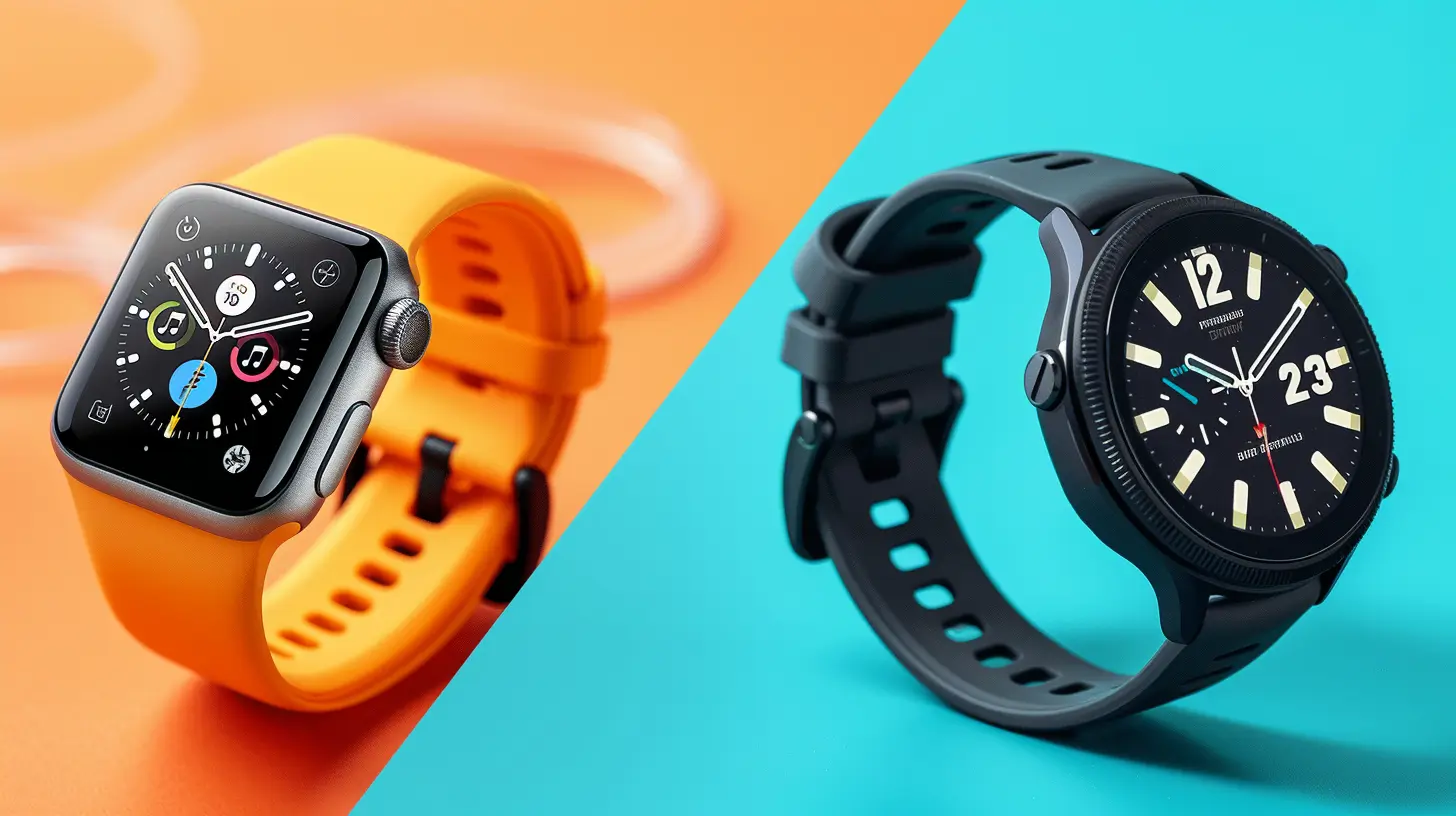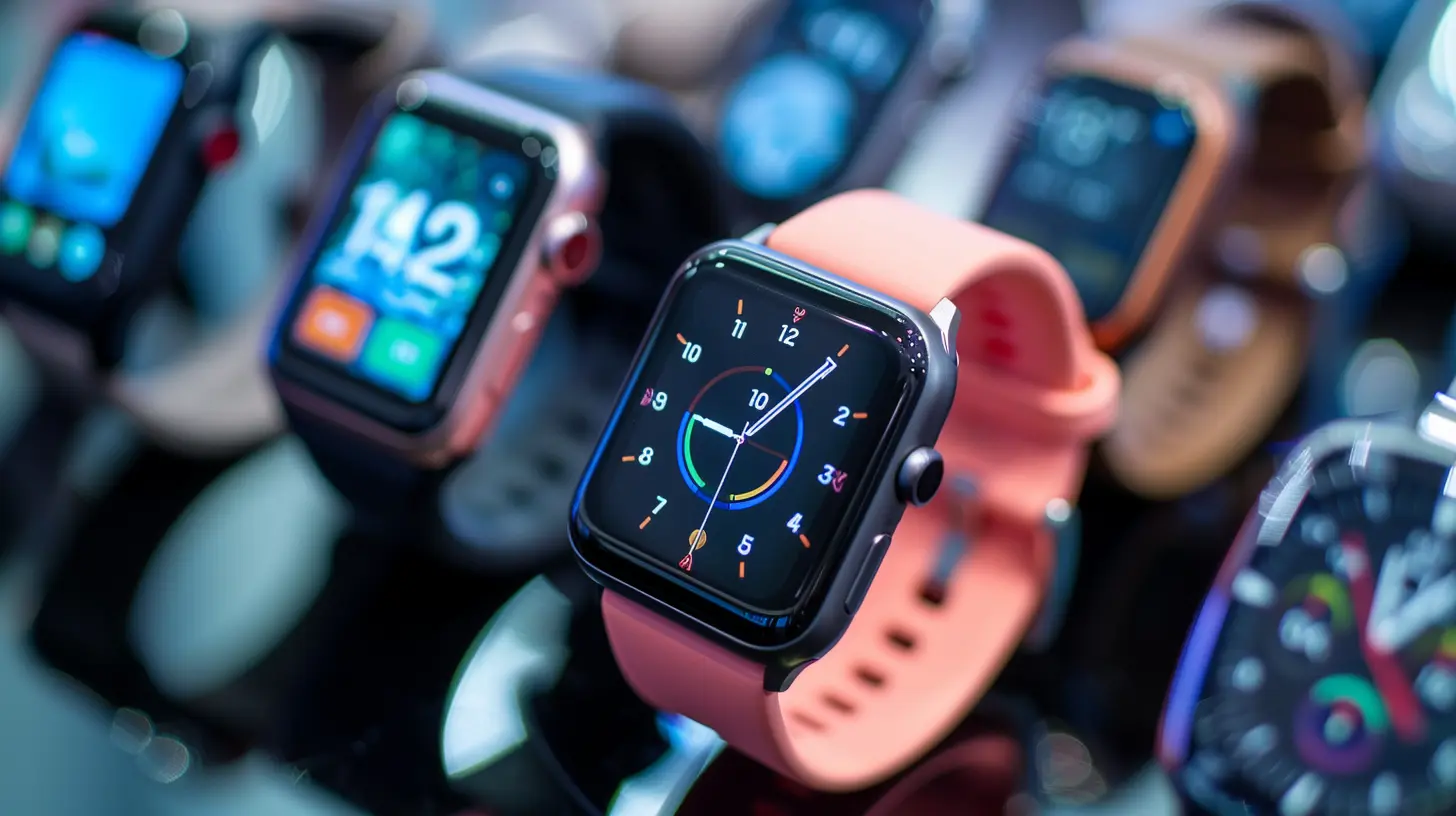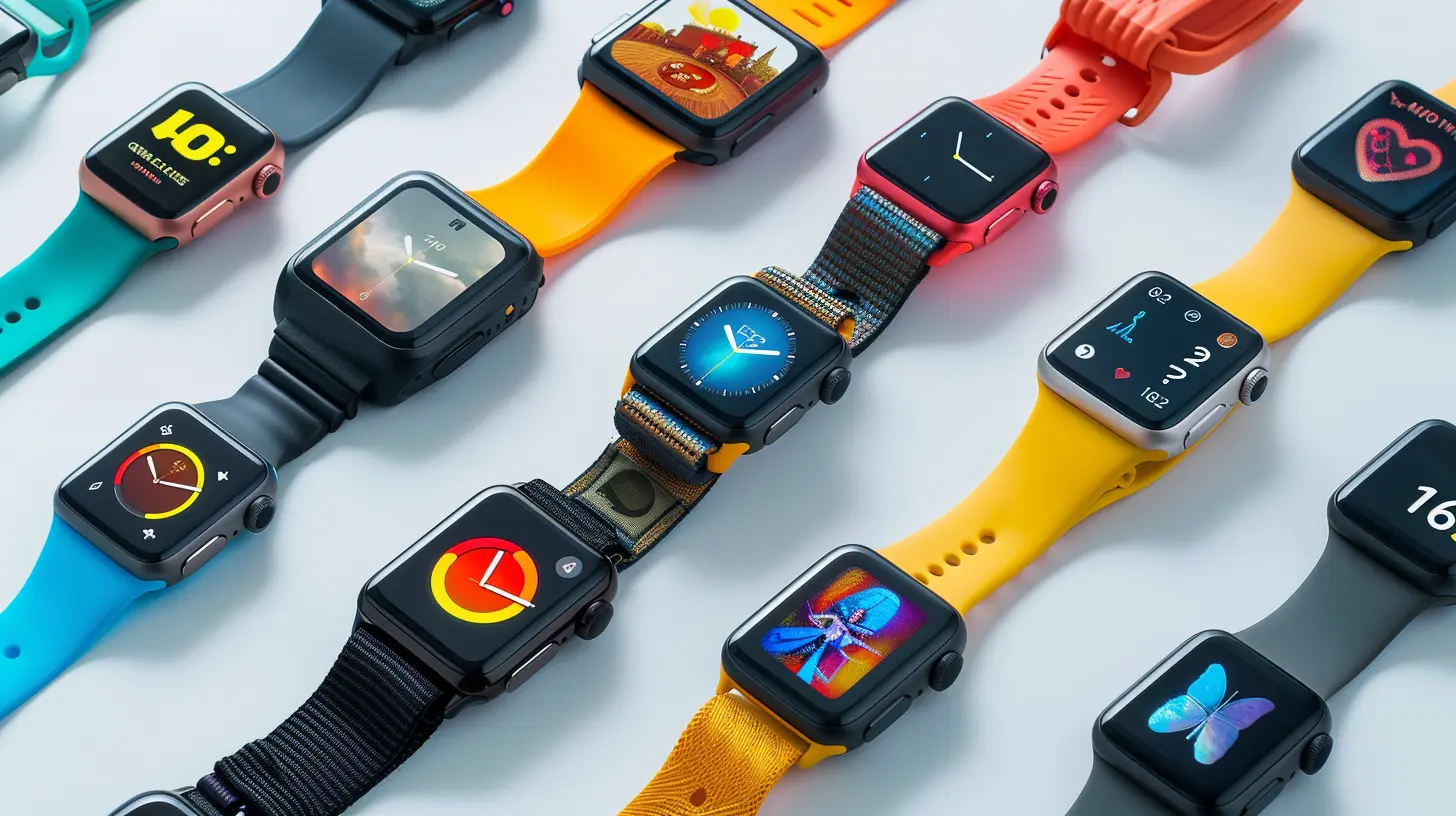Fitness vs. Smartwatch: Which Wearable is Best for You?
30 October 2025
Wearable technology has come a long way. We've moved from basic pedometers to advanced fitness trackers and smartwatches that resemble something straight out of a sci-fi movie. If you're looking to hop on the wearable tech train, you've probably found yourself asking, “Should I get a fitness tracker or a smartwatch?” Well, you’re not alone! With so many options out there, it can feel like you’re standing in front of a buffet with no idea what to pile on your plate. But don't worry, I’ve got you covered. Let’s break it down—fitness tracker vs. smartwatch—so you can make the best choice for you.

What is a Fitness Tracker?
First things first, let’s start with the basics. A fitness tracker is a wearable device designed primarily to monitor your physical activity. These sleek, often minimalistic gadgets are laser-focused on health-related features. They track things like your steps, calories burned, heart rate, sleep quality, and some can even monitor your blood oxygen levels.Imagine having your own personal trainer on your wrist, nudging you to move when you've been sitting for too long, or congratulating you when you hit your daily step goal. That’s what a fitness tracker does, minus the hefty price tag of a real-life trainer!
Popular Fitness Tracker Brands
- Fitbit: One of the pioneers in the fitness tracker space.- Garmin: Known for its durability and focus on athletes.
- Xiaomi Mi Band: Affordable and feature-packed for its price.

What is a Smartwatch?
A smartwatch, on the other hand, is like a tiny computer strapped to your wrist. Sure, it can track your fitness activities like a fitness tracker, but it also does a lot more. A smartwatch allows you to receive notifications, make calls, send texts, check emails, and even use apps—basically, it’s a mini smartphone.Think of it this way: if a fitness tracker is a personal trainer, then a smartwatch is your personal assistant—handling calls, giving you reminders, and, yes, making sure you stay active.
Popular Smartwatch Brands
- Apple Watch: The king of smartwatches with a robust app ecosystem.- Samsung Galaxy Watch: A solid choice for Android users.
- Garmin Venu: Still great for fitness, but with smart features.

Fitness Tracker vs. Smartwatch: Key Differences
Now that we’ve got the basics covered, let’s dive into the nitty-gritty details. What really sets these two gadgets apart?1. Focus Area
- Fitness Tracker: As the name suggests, a fitness tracker is all about health and fitness. Its main focus is to help you stay active and track your progress.- Smartwatch: A smartwatch offers broader functionality. Yes, it can track fitness, but it’s also designed to keep you connected to the world by showing notifications, calls, and even allowing you to interact with apps.
2. Design
- Fitness Tracker: Fitness trackers usually sport a slim, lightweight design, making them ideal for 24/7 wear. They’re simple, often without too many flashy features.- Smartwatch: Smartwatches are bulkier and more premium in design. They resemble traditional watches and often come with customizable watch faces and straps, giving you more options to match your style.
3. Battery Life
- Fitness Tracker: One of the biggest perks of fitness trackers is their battery life. Many fitness trackers can last up to a week or more on a single charge.- Smartwatch: Smartwatches are loaded with features, and all that extra functionality drains the battery faster. Expect to charge your smartwatch every day or every other day.
4. Health Tracking Features
- Fitness Tracker: They excel at tracking your daily activity, sleep, and sometimes advanced metrics like heart rate variability and SpO2 levels.- Smartwatch: While smartwatches also track fitness metrics, they might not be as advanced or accurate as dedicated fitness trackers. However, they make up for it by offering a wider range of functionality.
5. Price Point
- Fitness Tracker: Typically more affordable. You can grab a good fitness tracker for around $50-$150.- Smartwatch: Smartwatches are generally pricier, with prices ranging from $200 to over $500, depending on the brand and features.

Fitness Trackers: The Pros and Cons
If you're someone who’s laser-focused on health and fitness, a fitness tracker might be the right choice for you. But, like anything, it comes with its pros and cons.Pros:
- Long Battery Life: Some fitness trackers can last up to 10 days on a single charge. That’s like a lifetime in the world of gadgets.- Affordable: You don't have to break the bank to get a reliable fitness tracker.
- Focus on Fitness: If you’re just looking to monitor your workouts, steps, and sleep, a fitness tracker is perfect. No distractions!
Cons:
- Limited Features: No fancy apps or notifications here. It’s all about fitness.- Basic Design: Fitness trackers are usually more utilitarian in design. If you're looking for something flashy, this might not be your cup of tea.
Smartwatches: The Pros and Cons
If you’re someone who’s always on the go, juggling work, social life, and fitness, a smartwatch could be your new best friend. But, here’s what you need to consider:Pros:
- More Than Fitness: You can receive calls, texts, notifications, and even use apps directly from your wrist. It’s like having a mini smartphone strapped to you.- Customizable Designs: With interchangeable straps and customizable watch faces, you can easily match your smartwatch with your outfit or mood.
- Voice Assistants: Most smartwatches come with built-in voice assistants like Siri or Google Assistant, making it easy to control your device hands-free.
Cons:
- Battery Life: All those extra features come at a cost—battery life. You’ll likely need to charge your smartwatch every day or two.- Price: Smartwatches are significantly more expensive than fitness trackers. If you’re just looking for basic fitness tracking, it might not be worth the investment.
Choosing the Right Wearable for You
So, how do you choose between a fitness tracker and a smartwatch? It really comes down to your priorities and lifestyle. Here’s a quick guide to help you decide:1. Are You Primarily Focused on Fitness?
If your main goal is to stay fit, monitor your workouts, and track your health, a fitness tracker is probably all you need. They’re more affordable, less distracting, and offer great battery life. Perfect if you’re the type who just wants to focus on your fitness goals without the extra bells and whistles.2. Do You Want a Multi-Functional Device?
If you like the idea of having a device that can do it all—track your workouts, manage your notifications, and even help you make calls—a smartwatch is the way to go. It’s the Swiss Army knife of wearables, offering versatility in fitness tracking and beyond.3. What’s Your Budget?
Fitness trackers are much cheaper than smartwatches, so if you’re on a tight budget and don’t need all the extra features, a fitness tracker makes the most sense. However, if you’re willing to invest in a device that can do more than just track your steps, a smartwatch is worth considering.4. Do You Care About Style?
If design matters to you and you want something that can double as a fashion accessory, smartwatches offer more in terms of customizability and premium aesthetics. Fitness trackers, while sleek, are more utilitarian in design.The Final Verdict
At the end of the day, both fitness trackers and smartwatches have their strong points. If you’re serious about your fitness and don’t need all the extra bells and whistles, a fitness tracker is a fantastic and affordable option. But if you want a device that’s as versatile as your lifestyle, offering not only fitness tracking but also productivity features, a smartwatch is the way to go.Whichever you choose, the good news is that both will help you lead a healthier, more connected life. So whether you’re tracking your steps or sending a quick text from your wrist, you’re making a move toward a smarter, fitter future.
all images in this post were generated using AI tools
Category:
Review GuidesAuthor:

Gabriel Sullivan
Discussion
rate this article
1 comments
Kendall Gutierrez
Choosing between fitness trackers and smartwatches depends on your priorities: fitness features or multifunctionality. Assess your needs for optimal choice.
November 1, 2025 at 4:53 AM

Gabriel Sullivan
Absolutely! It's all about aligning the device with your personal priorities—whether that’s tracking your fitness journey or enjoying multifunctional features. Choose what suits your lifestyle best!


